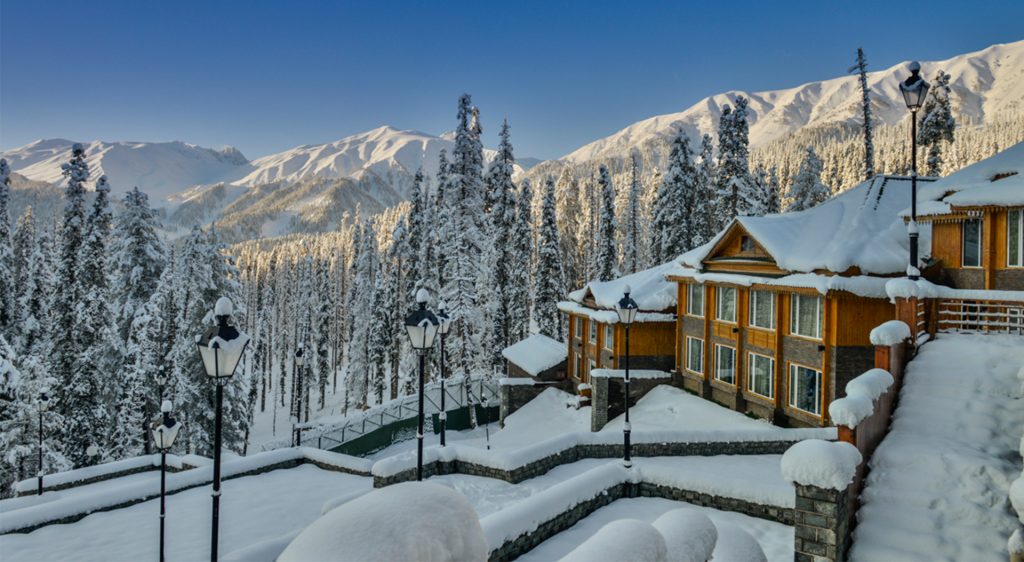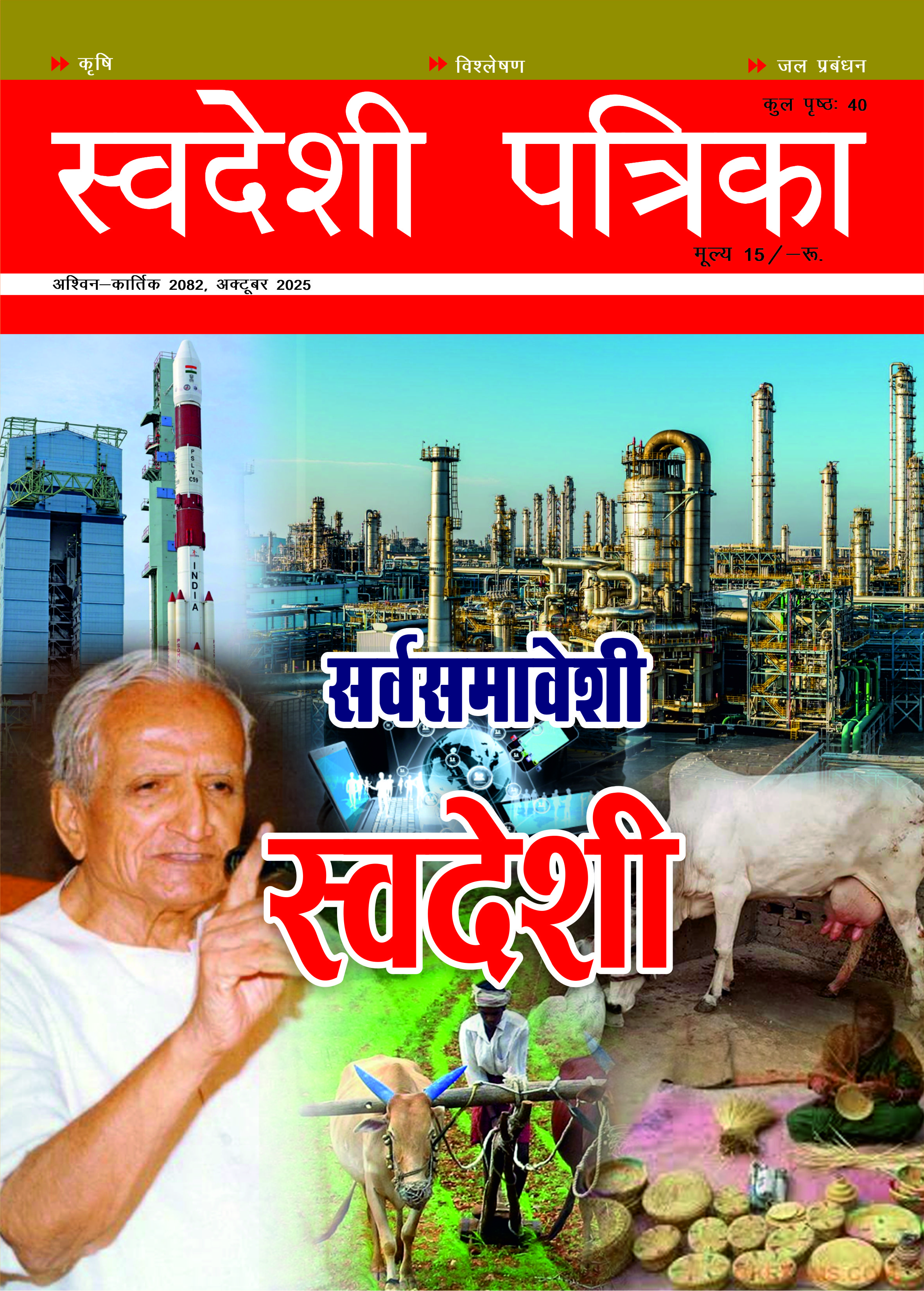
The Untold bravery to save Kashmir - 2
People must know and have right to know the truth and ground reality of the circumstances prevailing at the time of partition. — Vinod Johri
After the assembly elections in Jammu and Kashmir, the National Conference Government under the Chief Minister Shri Omar Abdullah has been formed while its ally Congress is not the part of his government. However, there are terrorist attacks on army camps, convoys, police force, Hindu migrant labour have intensified by sheer desperation in the Pakistan extremist and terrorist organisations, Pak army establishment and the terrorist handlers & sleeper cells in Kashmir.
People must know and have right to know the truth and ground reality of the circumstances prevailing at the time of partition.
This part of the article appeared in the magazine - Organiser – Oct. 27–Nov 3, 2019 – The Sangh Connection – Page – 34 to 38 – by Shri Arun Kumar, Former Sangh Pracharak of Jammu and Kashmir, Akhil Bhartiya Prachar Pramukh of Rashtriya Swayamsevak Sangh. This is the second part of the article. I have taken liberty with pride to search this article for Swadeshi Patrika.It is honestly submitted that nothing is mine in this part of article.
Service work
The second stage of the RSS work started after creating a successful history of sacrifices. The challenge lay ahead after the ceasefire came into being of our looking after those who had come as migrant and displaced after losing everything and near and dear ones, in Jammu and its vicinity.
Sheikh Abdullah did not allow even the state’s own people to stay in Kashmir and pushed them towards Jammu. It was a travesty that Jammu has remained a land of these displaced people event today. RSS asked help from the society for the urgent necessities of these people and started working on priority issues like food, shelter, security and medical help. The swayamsevaks yoked themselves to the service of these migrants and displaced, without thinking about themselves, as they stood firm like a wall before the enemy during the time of Pakistan’s aggression.
Praja Parishad and its agitation
Disturbed by the Pakistani atrocities against his subjects, Maharaja Hari Singh even accepted the illogical demand of handing over the power to Sheikh Abdullah and signed on the letter of annexation. Immediately after assuming charge, Sheikh Abdullah started dealing with the stern hand with his political opponents. People of Jammu were considered to be the supporters of Maharaja and they were attacked as well. This situation forced the people of Jammu to form their own political party. Jammu Praja Parishad was formed by projectingShri Prem Nath Dogra equal, aconsensus personality who was worse the Deputy Commissioner of Muzaffarabad. Its President and the minister Shri Hari Wazir and Shri Hansraj Sharma respectively, were young but its functioning and organization were backed by the belligerent leadership of Sri Balraj Madhok.
The Praja parishad spread its wing all over the state in no time. Praja parishad took many efforts to resolve the problem. Its leadership put forward the actual position before Sheikh Abdullah in the state and Sardar Patel and Prime Minister Pandit Nehru in Delhi. Infuriated with this, Sheikh expelled Sri Madhu Madhok, his parents and his family from Jammu and put Pandit Premnath Dogra in jail.
The opposition was growing and Sheikh’s also brutality also. The administration was inflicting free-willed atrocities against Praja parishad workers and supporters. The developments like Delhi accord happening under Sheikh Abdullah’s pressure, the announcement of aSadr-e-Riyasat after changing the President-approved head of the state etc. created an atmosphere of uncertainty and distrust in the state. As a result, thePraja Parishad was forced to move towards a decisive agitation.
Heat of agitation in Delhi
The agitation was at its peak in Jammu. The agitators were facing canes and bullets every day. Processions supporting the agitation started in Delhi too and a series of protests went on. The police caned the agitators brutally in HaujKazi in which 60 persons were injured. The teargas shells were also thrown. This instigated the protests even more. Annual meeting of Bhartiya Jan Sangh was on at the time in Kanpur. The JanSangh announced an eight-member fact-finding team to be sent to Jammu but the BhartiyaGovernment did not allow it to go there.
Jan Sangh, Hindu Mahasabha and Ramrajya Parishad announced their decision to observe March 5, jointly as Jammu day. The section 144 was imposed at all major places in Punjab and Uttar Pradesh. At a big rally was organised in the ground in front of Delhi station that was presided by Karpatriji Maharaj. Jan Sangh President Dr. Shyama Prasad Mookerjee addressed the rally. The police arrested Dr. Shyama Prasad Mookerjee, Barrister Nirmal Chandra Chatterjee, Nandlal Sharma and Vaidya Gurudutt in the midst of the crowd.
A satyagrah was announced in Delhi and Pathankot against the arrest of Dr. Shyama Prasad Mookerjee and police atrocities. Praja Parishad is credited with providing a platform for the citizens in Jammu and Kashmir, who wanted to associate their identity with Bharat. The agitation of the nationalist forces under its leadership foiled the British conspiracy to break Kashmir away from Bharat and the ploys of Sheikh Abdullah to become Kashmir’s Sultan (emphasis is mine). It was also successful in attracting the nation’s attraction on this point and create a strong public opinion.
Dr. Shyama Prasad Mookerjee’s Martyrdom
When the people of Jammu were struggling for their survival under the leadership of Praja Parishad, the national leader and Jan Sangh President Dr. Shyama Prasad Mookerjee, who was former Industry Minister in Nehru cabinet, went to Jammu with three other MPs namely Shri V.G. Deshpande, Shri Ram Narayan Singh and Barrister Uma Shankar Trivedi in August 1952. Dr. Mookerjee gave a strong boost to the agitation, which was on with the slogan “one law one ruler and one flag”. Addressing a rally during this time, he announced “Either I will obtain the law or sacrifice myself”.
A unanimous resolution in this regard was passed in the first session of Jan Sangh at Kanpur in December 1952 under which, it was decided to extend full support to the Praja Parishad’s agitation and make it nationwide. It was also proposed to get cooperation from other nationalist organisations.
There was no restraint to Sheikh’s tyranny in Jammu while Pandit Nehru was adamant in Delhi and he would trample agitation with the canes and bullets. Not only the opposition leaders and parties, even ruling party members could do little more than watching the watching on helplessly.
Satyagraha in March and April rocked Delhi. The Satyagrahis is work coming from all over the country and getting arrested themselves. They were mistreated not only on the roads but in jail also. The trampling by government was in full swing. On this background, Dr. Shyama Prasad Mookerjee announced as the last measure on May 7, 1953 “I will go to Jammu tomorrow”.
It is notable here that when the agitation in Delhi was in full swing,two other members of Lok Sabha Barrister U.M. Trivedi and Hindu Mahasabha’s General Secretary Vishnu Ghanshyam Deshpande had announced their visit to Jammu.They were arrestedin Jalandhar on April17, 1953. However, the Supreme Court acquitted and released them. The Bhartiya government learned from this that if he were arrested with Supreme Court jurisdiction, he would also be released.Thus, Nehru and Sheikh’s plans would not bear fruit. Until then, Jammu and Kashmir was not in the jurisdiction of Supreme Court of Bharat.Hence, he was arrested in Jammu and Kashmir borders (emphasis is mine).
According to former Prime Minister Atal Bihari Vajpayee, who accompanied Dr. Mookerjee, then as journalist, the Deputy Commissioner of Gurdaspur himself came to him and said they would arrange everything for his visit. He said they didn’t want to stop him. There would be no hurdle in his travel because of him. They were ready to make his travel comfortable. However, as they reached halfway on the Madhopur bridge, Jammu and Kashmir police arrested him.
The government did not allow Barrister Uma Shankar Trivedi, who had gone to file a petition in Jammu and Kashmir High Court against the arrest, to meet him. He could meet Dr. Mookerjee only when Jammu and Kashmir High Court allowed him to do so. The verdict on Barrister Trivedi’s petition was scheduled on June 23, 1953. Everyone expected that Dr. Mookerjee would be release on this day. However, he died in suspicious conditions just on the eve of that day (emphasis is mine). His colleagues arrested with him were released. Dr. Mookerjee’s sacrifice bore fruit and the permit system was abolished. Many provisions of the Bharat’s constitution were enforced in the state.
(But not the author of this article)


